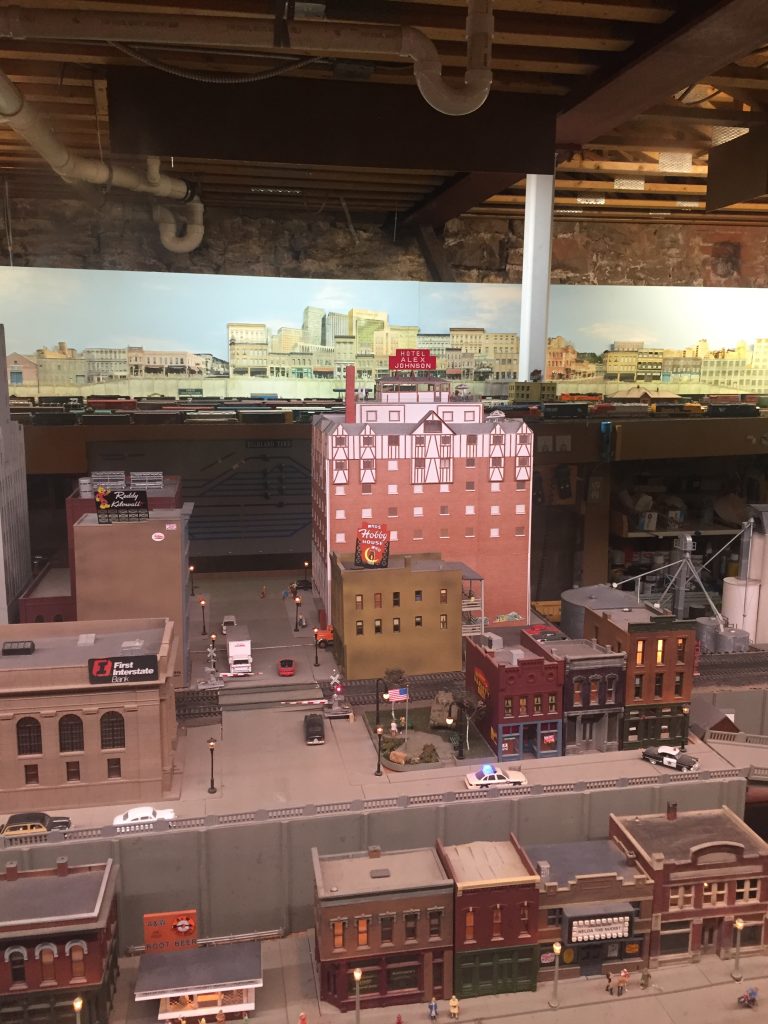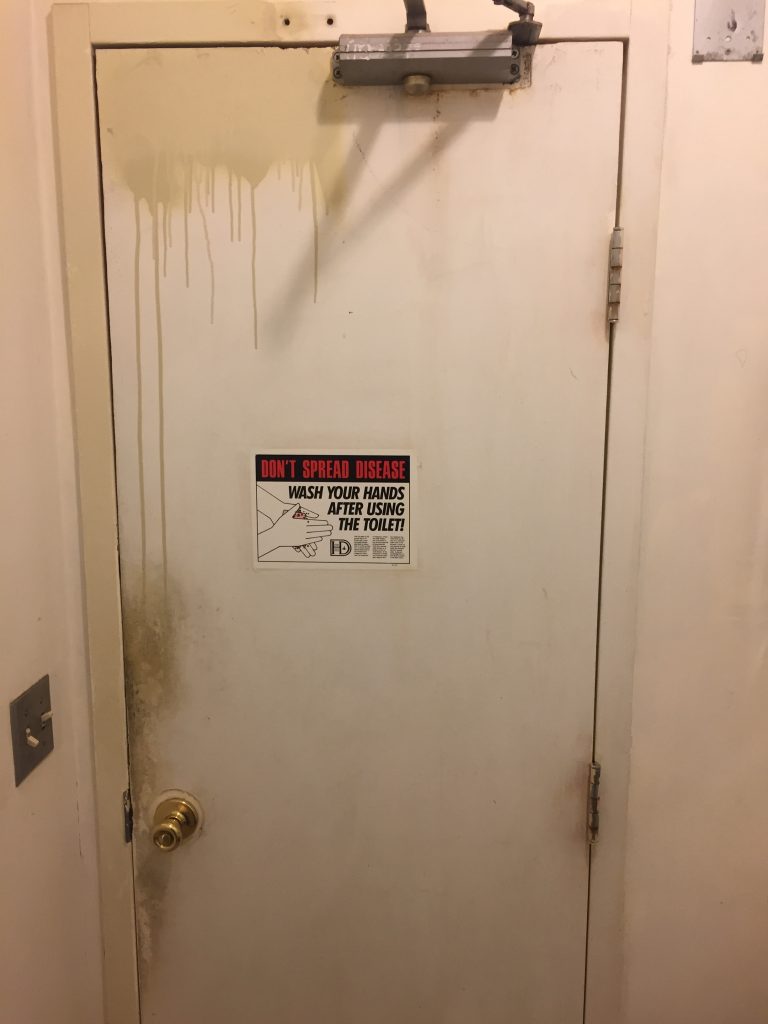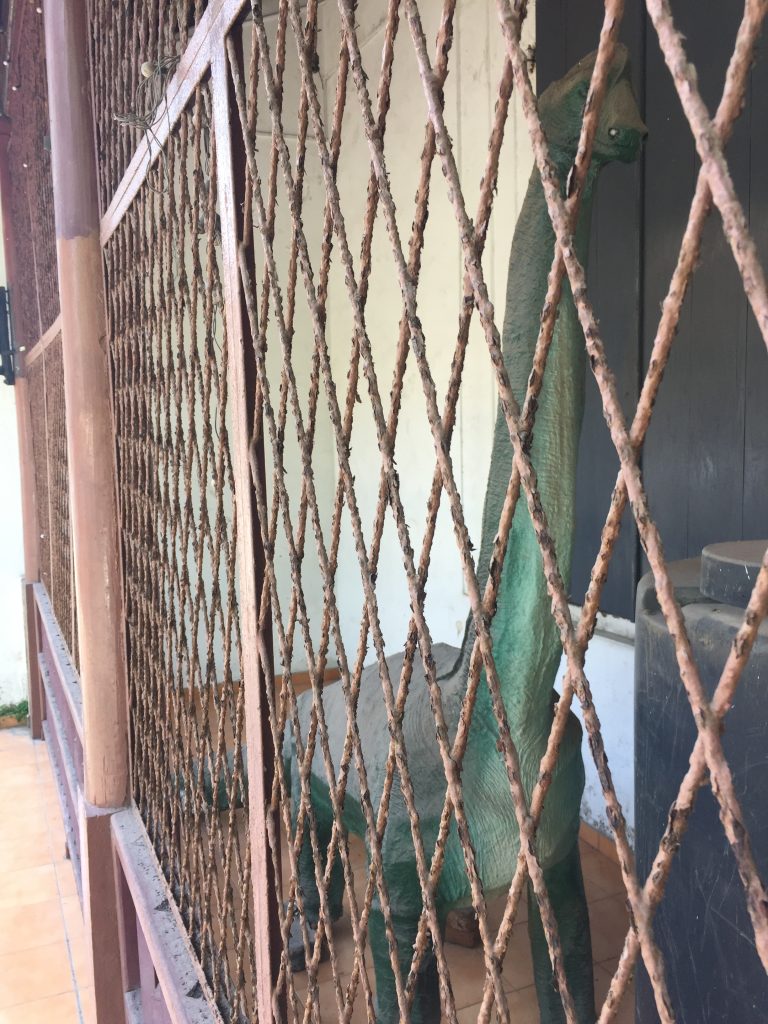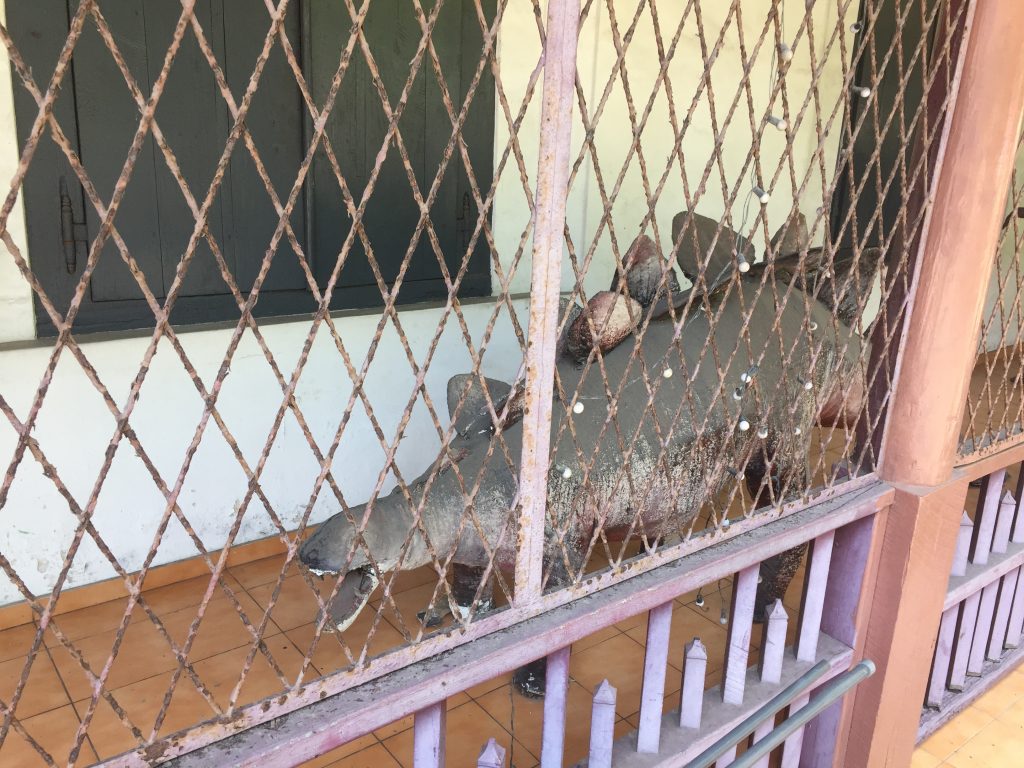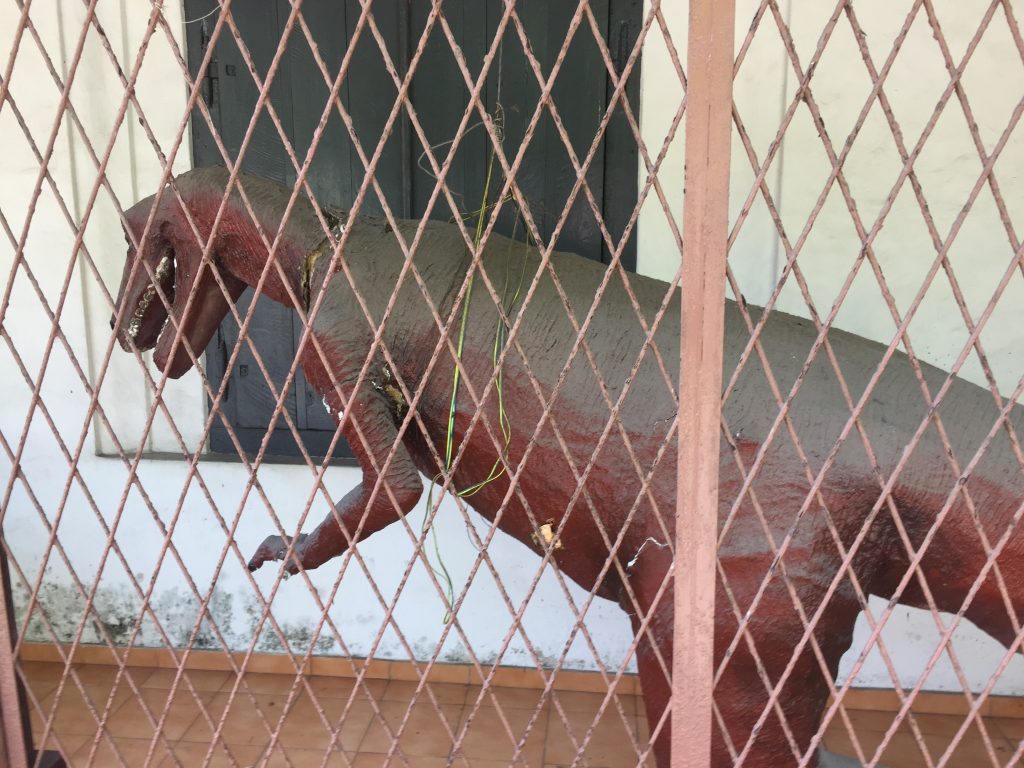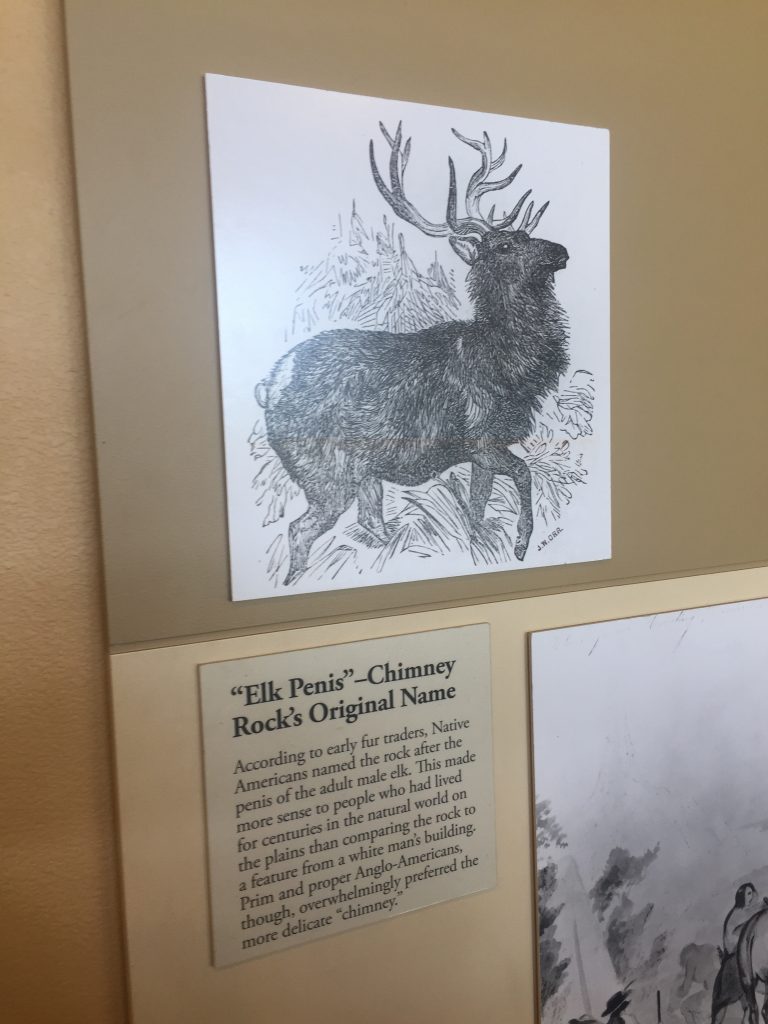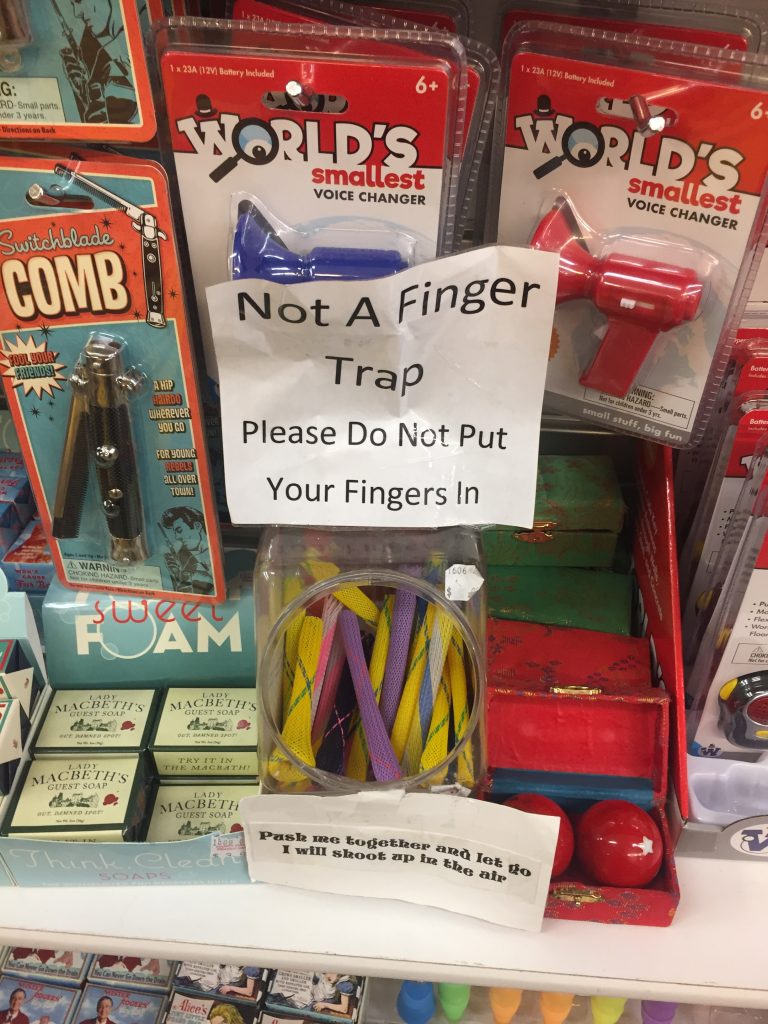Traveling has made me comfortable in most environments, no matter how harsh or unpredictable the terrain, but the local bar is far and away the venue I dread most. I’m not talking about one in a chain of bars, regional, national, or otherwise. I’m not referring to the loud, popular bars downtown or along trendy streets. Not the brew-pubs. Not the clinical dives.
I’m talking about the discreet brown-brick locales with broken neon signs in the windows and two sets of warped plastic lawn furniture on the sidewalk out front where people hover to smoke. The place with a pool table that nobody uses and a single television in the corner, its screen vaguely rainbowed by some unrepaired collision, not muted, exactly, but at a volume that renders the words of sports commentators garbled. The place you step inside and wonder whether or not you need to be a war veteran to order a drink, where, at any given time, the total number of human legs is an odd number or an even number, oddly distributed.
I don’t know how long it takes to become a local at one of these places but my line of work has not yet yielded a residency and, until now, I haven’t yet understood how best to play my suspicious appearing role. It’s in my nature to act like a guest in somebody’s home, to compliment mundane features of the bar or force small talk with people sitting nearby. I inevitably get the feeling they would rather be left alone.
Against all odds, it’s Hector that changes the equation as I step into ‘Bar on 144th’ and immediately spy ‘The Out of Order Jukebox’ across the room. It’s dead silent in the bar: an early Tuesday evening crowd, the majority of which looks up at me as I enter. Not the atmosphere I hoped for but very much in line with what I expected.
Hector shifts heavily in the kennel and I adjust my arm, roll my shoulder, and step up to the bar. The bartender, a woman in her sixties, scratches the skin above her eye and slides a decrepit plastic drinks menu across the way, asking what I’ll have without giving me time to consider. I order a drink and a basket of fries and a side salad and so little changes that I wonder whether she’s heard me or whether I said anything at all. Eventually, she speaks again:
“Who you got down there?”
“Sorry,” I tell her, “I can sit outside if he’s not allowed. I came in on a bike and…”
“Just curious.”
Fifteen minutes later, the bar denizens have all crowded around Hector who, looking like the wart off an old man’s back, chews at shredded carrots and occasionally hops about on the dirty wooden floor. He’s warmed, some, since the rescue. Seems comfortable in human hands. Petting doesn’t seem to evoke any response in the blind creature, which makes me wonder whether he can feel anything at all along his leathery back. He’s happy for gentle massaging and fresh vegetables and he expresses as much by rubbing his feet together. The small, doting crowd laughs as he hobbles over to nibble at an old man’s shoe laces. They feed him more of the salad, which arrived in record time, while I wait for the fries and fret about the jukebox.
‘One assumes that management keeps ‘The Out of Order Jukebox’ plugged into the wall mainly for aesthetic purposes and, perhaps, out of some respect for the whims of the machine which occasionally plays back-to-back albums for hours on end but is just as likely to dip into a bouts of silence that last days, sometimes weeks, at a time. ‘The Out of Order Jukebox’ responds to no outside input, happily rejecting quarters and disregarding coded requests. The original ‘out of order’ sign has been replaced with one carved from wood so that regulars can wordlessly point out the naivety of the uninitiated, these otherwise stoic locals inwardly grinning at the friendly insult.
Even more sporadic than the music are the flutterings of the machine’s inner catalogue, which have grown dusty in retirement. Hidden there, between the pages, is said to be a handwritten note- a line or two of unrecorded prose. Those who see it, or claim to have seen it, walk away with the mien of a person slightly changed for the better, having been granted a subtle happiness or small piece of wisdom.’
Another bout of laughter erupts from the locals and I turn to see Hector licking curiously at an empty beer bottle. I watch to make sure nobody thinks to get the decrepit rabbit drunk but swing back around when the silent jukebox twitches. Dust floats about inside the glass, surely disturbed by a change in the delicate inner atmosphere. I try to remember what page the catalog had been on when I first looked, try to peer through the curved glass along the sides to decide whether or not I believe there might be as esoteric truth wedged there.
Someone taps on my shoulder and I turn around to find the bartender. She points at the wooden ‘out of order’ sign and the bar erupts in laughter again. I smile in a way that I hope looks resigned to being the butt of the joke.
“Fries are on the table, hon,” the woman says, squeezing my shoulder, and they all go back to patting, feeding, and otherwise entertaining Hector.
I shrug at the jukebox and walk over to my food. I’m not sure what could make me happier.
-traveler

